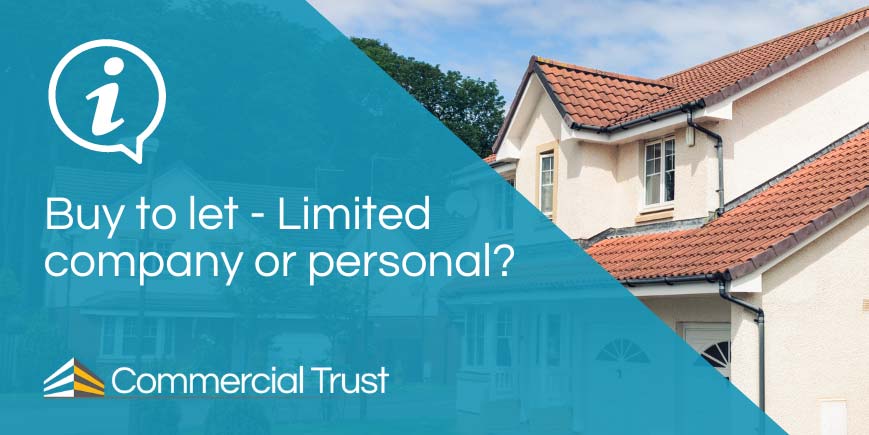This information should not be interpreted as financial, tax or legal advice. Mortgage and loan rates are subject to change.

Categories: guides | buy to let mortgage guides | property investment guides
Investing in property with a buy to let strategy can be a good method of making money. It can offer both steady rental income and long-term capital appreciation.
Changes in taxation and regulation have meant it requires a strong strategic approach, and there is always the risk that you could lose money, if profits change to losses and/or or your property falls in value, rather than grows.
Remember: Your property may be repossessed if you do not keep up with payments on a mortgage.
In this article, we will explore three ways you may be able to make money from buy to let: limited company investing, Houses of Multiple Occupation (HMOs), and holiday lets. We delve into their benefits and explain why they can be excellent choices for aspiring property investors.
How does buy to let make money?
To make money from buy to let, you need to achieve a profit from the rent you charge tenants, after paying all costs involved with owning and managing a rental property.
Some landlords pay for third party services to reduce the work they personally have to put into running their property business, for example:
- A letting agent: who can find you a tenant, manage the tenancy and maintenance of the property and collect the rent for you (or just do some of these things for you to reduce your outlay on their costs)
- Maintenance and repairs: a letting agent could arrange for this work to be done as they will have contacts they use, or you can set up relationships or do some (non-professional) maintenance work yourself.
- End of tenancy cleaning: you may pay a professional to do this, or do it yourself as a cost saving.
- Gas and electrical checks: These have to be done by qualified professionals, but a letting agent can arrange this for you, or you can arrange this yourself if you are not using an agent.
There are obviously significant costs associated with buying a property, and ongoing costs like a mortgage and insurance. You can read our guide to the costs of buying a house for more details.
There will be an impact on the money you make from buy to let properties when you use rental income to pay for these sorts of services. Some are avoidable by taking them on yourself, others are not.
Limited company investing
You may find that you can make more money from buy to let profits by investing through a limited company structure.
This approach involves setting up a company specifically for your property investments (you can invest through an already trading company, but there are fewer lender options, which narrows the mortgage interest rates available to you). This offers several advantages:
Tax efficiency
By owning properties through a limited company, you may be subject to lower tax rates compared to personal ownership. Limited companies pay corporation tax on rental profits, which is often lower than personal income tax rates.
Moreover, expenses related to your property business can be offset against rental income, reducing your overall tax liability.
Limited liability
There is an important distinction to be made on this point. You may read in a number of places that investing through a limited company will ring-fence financial liability to the company, and won't impact you as an individual. However, we have yet to come across a limited company buy to let mortgage lender who does not require personal financial guarantees from the directors of the limited company.
The limitation of liability may come into play on legal issues. This would have benefits for a landlord, by shielding you personally from any arising legal matters.
Tax and legal professionals should be consulted for a clear picture of your position, but do make sure you speak to experts in property for accurate information.
Portfolio growth
Investing through a limited company allows for more flexibility in expanding your property portfolio. It enables you to retain profits within the company, providing funds for future investments and enhancing your overall portfolio growth potential.
For more information on this subject, read our guide “A limited company or personal buy to let - the right choice”.
Houses of Multiple Occupation (HMOs)
HMOs, also known as multi-let properties or house shares, involve renting out individual rooms within a property to separate tenants. The reasons HMOs can make more money than single let buy to let properties include:
Increased rental yields
Renting out individual rooms within a property often generates higher rental income compared to traditional single-let properties. This is due to the ability to charge for each room and the potential for full occupancy.
Diversification
HMOs provide diversification by spreading risk across multiple tenants. Even if one tenant leaves, you can still generate rental income from the remaining occupants, reducing the impact of void periods.
Scalability
HMO properties are particularly attractive for investors aiming to scale their buy to let portfolio rapidly. By converting larger properties into HMOs, you can increase the number of rentable rooms and subsequently boost your rental income.
For everything you need to know about houses of multiple occupation, read “The guide to HMOs”.
Holiday lets
Investing in holiday lets offers an alternative approach to the traditional buy to let strategy, catering to the short-term rental market. Here's why holiday lets could help you make money from buy to let style investing:
Higher rental returns
Compared to long-term rentals, holiday lets often generate significantly higher rental yields due to the premium prices charged for short stays. Popular holiday destinations and areas with high demand can yield excellent returns during peak seasons.
Flexibility
Unlike long-term rentals, holiday lets allow property owners to use their investment for personal use. This flexibility gives you the opportunity to enjoy the property yourself, while earning income from it during other periods.
Tax benefits
A holiday let is automatically defined as a company in terms of the tax treatment so, as with limited company investing, you might benefit from lower tax rates from corporation tax than with personal income tax and you can offset mortgage interest and other costs.
If you are considering investing in this property type, read “What is a holiday let” which talks about everything from finding a property to getting a holiday let mortgage.
Whatever your choice, Commercial Trust can help you
When it comes to your plans to make money from buy to let properties, considering limited company investing, HMOs, and holiday lets can significantly boost your profits. Investing through a limited company structure provides tax efficiency, limited liability, and greater portfolio growth potential. HMOs offer increased rental yields, diversification, and scalability, while holiday lets provide higher rental returns, flexibility, and potential tax benefits.
Remember, thorough research, market analysis, and a solid understanding of local regulations are essential before embarking on any buy to let venture. By carefully considering these strategies and their advantages, you can make informed decisions and enhance your chances of success in the buy to let market.
Our advisors will take you through your mortgage options step-by-step, we specialise in all areas of rental investment solutions. Simply call us for free, live chat with our advisors, or request a call back online 24/7.






